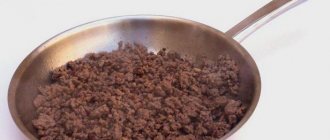It is these amino acids that are responsible for metabolic processes in muscle tissue, and also regulate the amount of sugar in the blood, help regenerate muscle and bone tissue and heal wounds, in addition, only when their content is sufficient, growth hormone is released.
How much protein do I need?
Protein is one of three macronutrients we need daily for energy and well-being.
But exactly how much protein do we need, and how much is too much? This article discusses how to optimize your protein intake to meet your body's needs and support your training goals. There are many reasons why you might take protein shakes—building muscle, losing weight, gaining weight, recovering from an injury or illness. Protein shakes can be helpful in each of these cases, depending on what you put in them and how often you take them.
Before you measure out your powder and start making your shake, figure out how many protein shakes you should be taking per day. You need to think about your muscle growth and recovery goals and how they fit into your daily schedule.
Carbohydrates. Fast Energy
Their main function is to provide us with accessible, quickly extracted energy for any process, from thinking about where to go in the summer to bench press.
In the classical approach to losing weight through the only method known to me (and consistent with science) - calorie manipulation - the norms for proteins and fats are first calculated, and carbohydrates are obtained according to the residual principle and, most often, are the first to be reduced. Exactly the same thing happens when you try to consciously overeat to build muscle mass.
Photo: istockphoto.com
With proteins and fats, we have already figured out how much and what. Now let's calculate carbohydrates. Let’s say our support (balance) diet is 1700 Kcal, weight is 60 kg. This works out to 90 grams of protein, 60 grams of fat. Convert into calories: 1 gram of protein – 4 Kcal, 1 gram of fat – 9, resulting in 900 Kcal. 800 Kcal remains (1700-900). 1 gram of carbohydrates - 4 kcal. Total carbohydrates needed are 225 grams.
Personal experience: how I ate junk food and didn’t gain weight
Let me remind you that we proceeded from the conditions of energy balance. You and I have determined that we are shifting the balance towards a calorie surplus of 200. And the question arises - where do we get these additional calories from? Let us remember, firstly, that our body does not like muscles very much; they require a lot of energy. Therefore, it makes sense to spend all excess calories primarily on carbohydrates. That is, to our 225 grams we add another 50 and...
... and nothing may work out! Alas, even if you have acquired the most accurate scales in the world, carefully weigh and calculate each poppy dewdrop, having previously specified its calorie content and nutritional value in the reference book, this is by no means a guarantee that muscles will grow in principle, much less at the rate that We fantasized ourselves there mathematically.
Why do we need protein?
Every day, throughout our lives, our muscles are constantly changing as they are partially broken down (muscle protein breakdown) and partially repaired (muscle protein synthesis).
There are two common ways to increase muscle protein synthesis: performing weightlifting exercises (or other resistance exercises) and consuming protein.1 When you are trying to lose weight and maintain a calorie deficit, it is important to include enough protein in your diet to prevent muscle protein breakdown.2
Protein also slows down digestion, making us feel fuller longer, which promotes weight loss. This property can make life easier for all snack lovers, because most likely, if your digestion is slow, you will stay away from the refrigerator...
As we age, we tend to lose muscle mass, so consuming enough protein is important for older adults as well.3
How much protein do you need per day?
When thinking about how many protein shakes you should drink per day, it's best to consider your total daily protein requirement.
Healthy people require about 0.8 g of protein per kilogram of weight per day, and athletes need up to 1.3-1.8 g per kilogram of weight, depending on the frequency and intensity of training.2
The lower end of this range (1.3 g) is generally recommended for those participating in endurance sports such as long-distance running, cycling, tennis or soccer. The top figure applies to those who do strength training. This could include weightlifters, bodybuilders, crossfitters or rugby players.
With this simple formula, you can determine how much protein you should consume daily, both from food and from your protein shakes.
For example, if you weigh 68 kg and exercise at moderate intensity most of the week, you would need to multiply your weight by 1.3: 68 kg x 1.3 g/kg = 88 g protein per day
If you only eat three meals a day day, you need to ensure that each meal contains about 29 g of protein (approximately 125 g of chicken meat). If you can't eat that much protein at each meal, a protein shake can easily make up for the missing amount.
However, if you weigh 115 kg and do intense weight training twice a day, you may need more than 200 grams of protein:
115 kg x 1.8 g/kg = 207 g protein per day
It's hard to get that much protein from food alone, unless you eat seven servings of chicken breast a day, which gets boring pretty quickly. To help such an athlete get the required amount of protein, it will be useful to take protein shakes - two or three per day.
Another question is how much protein you should take at one time.
Research on Optimal Protein Intake
All values in the list of studies below are expressed in grams of protein per pound of body weight per day. All studies controlled energy intake either on the basis of individual requirements or with energy intakes set to be equivalent across all experimental conditions, with differences between groups only in the proportion of protein. If experiments relied on unreliable methods, such as nitrogen balance as a proxy for changes in lean body mass, I included them as long as sweating and dietary adjustment were controlled:
- In 1992, Tarnopolskyetal found no differences over a two-week period in total body protein synthesis or lean body mass index in strength athletes consuming 0.64 g/lb (1.4 g/kg) or 1.10 g/lb (2. 42 g/kg). Protein oxidation increased in the high protein intake group, indicating nutrient overload.
- In 1988, Walbergetal reported that 0.73 g/lb (1.6 g/kg) was sufficient to maintain positive nitrogen balance in weightlifters over a one-week weight loss period.
- In 1988, Tarnopolskyetal found that only 0.37 g/lb (0.8 g/kg) was required to maintain positive nitrogen balance in high-level bodybuilders (5 years of training, possible prior androgen use) for 10 days. .45 g/lb (0.99 g/kg) is sufficient to maintain lean body mass for more than 2 weeks. The authors note that for bodybuilders, 0.55 g/lb (1.2 g/kg) is sufficient.
- In 1992, Lemonetal found no difference in gains in strength and muscle mass in novice bodybuilders consuming 0.61 g/lb (1.34 g/kg) or 1.19 g/lb (2.6 g/kg) for 4 weeks. ). Based on nitrogen balance data, the authors recommend 0.75 g/lb (1.65 g/kg).
- In 2006, Hoffmanetal found no differences in body composition, strength, or resting hormone concentrations among strength athletes consuming 0.77 g/lb (1.7 g/kg) or >0.91 g/lb (2.0 g) /kg) for a period of 3 months.
So, there are some long-standing studies based on nitrogen balance that suggest (but never find) a benefit from high protein intake, but as I mentioned above, these studies had methodological inaccuracies. Nitrogen balance is a notoriously unreliable method for assessing changes in lean body mass, especially high values, and these experiments did not control for sweating or dietary adaptation. Significant changes in dietary protein intake are known to result in a negative nitrogen balance 2 weeks after the change, even in the case of significant protein and energy intake. Additionally, these studies did not exclude users of androgenic anabolic steroids, although they were conducted on competitive athletes (Tarnopolskyetal, 1988). Unsurprisingly, many of these studies are not translated and remain obscured in abstract form on PubMed, if they appear there at all.
The Bayesian bodybuilder tramples methodological errors into the ground.
Based on the studies discussed above, many reviews have concluded that 0.82 g/lb (1.8 g/kg) is the upper limit of the benefits of protein intake on body composition (Phillips & Van Loon, 2011). These recommendations often include a double 95% confidence level, meaning they took into account the highest mean intake at which benefits were observed and then added two standard deviations to that level to be absolutely certain of the maximum benefit from additional protein intake. Thus, consuming 1 g/lb (2.2 g/kg) is a pointless oversafety, since 0.82 g/lb (1.8 g/kg) is already very safe.
The figure below summarizes the literature. As you can see, 1.8 g/kg (0.82 g/lb) is the point beyond which there is no benefit from consuming additional protein.
RDA – recommended daily allowance; SV - athletes in endurance sports; SS – athletes of power sports.
How much protein can the body absorb at one time?
Taking into account the constant process of breakdown and synthesis of muscle tissue, it is customary to divide the daily amount of protein into 3-4 equal portions - be it food or protein shakes.2
However, too many calories from any source will cause weight gain, so there is an upper limit to the amount of protein that can be beneficial. You can digest protein at different rates depending on the type (whey, soy, casein, etc.) and what other ingredients are in your meal or protein shake (milk, water, fruit, fat, etc.) .d.).
Can I Take Too Much Protein? How dangerous is this?
In short, there is no clear answer about the maximum amount of protein that will be useful in a single dose. The recommendations are rather based on your goals. Typically, to maximize muscle protein synthesis, it is recommended to consume approximately 20-25 grams of high-quality protein per meal.3
Yet, studies have shown that higher doses, 30-45 grams, have better effects on muscle mass and strength.4 Another study looking at the possibility of preventing age-related muscle loss found that 25-30 grams of protein per day is the optimal dose.5 In general, recommendations range from 20 to 45 grams per dose.
When calculating how many shakes you should drink each day, think about your total daily protein needs and how many grams of protein are in each serving of your protein powder.
If your lunch or dinner includes a lot of protein, then one smoothie in the morning (with or after breakfast) may be enough to meet your daily protein needs. If you work out after lunch and have plenty of time before dinner, it's best to drink a second shake to optimize muscle protein synthesis post-workout.
Protein shakes can also play an important role in the diet of vegans and vegetarians who do not consume high-protein animal products.
You may have heard about the negative side effects of high-protein diets, but no studies have proven that protein is harmful to healthy people.6 It is important to include high-quality carbohydrates, healthy fats, and a variety of vitamins and minerals in your diet to ensure that you are providing your body with all the nutrients it needs every day. substances.
Daily human need for proteins!?
The most important element of a trainee's diet is protein. It is responsible for a number of metabolic functions, ensuring smooth regeneration after exercise and effective muscle recovery.
How much protein should you eat?
There are different opinions on the issue of dosage for an optimally balanced diet. Typical recommendations start at 2g of protein per kg of body weight per day. This amount, which allows the muscle mass to receive the required amount of the substance after training, ensures complete regeneration and preparation of the muscles for further training. A person weighing 80 kg should consume 160 g of protein throughout the day. Making sure you have enough protein is essential for the healthy functioning of the body.
The Importance of Protein in Strength Training
Strength training is a specific activity that requires our muscles to work anaerobically. During exercise, muscle structures are damaged due to exposure to lactic acid. The body is in a state of damage and begins to activate mechanisms designed to repair itself.
The muscles become inflamed and begin to use amino acids to “heal” the damaged structures, allowing the muscles to recover and be ready for the next exercise. The body primarily uses amino acids obtained from the proteins it eats. However, in case of their deficiency, muscle proteins can be used, i.e. the effect of muscle catabolism appears. Therefore, it is very important to choose the right amount of protein in the diet, taking into account the weight of the trainee and his physical activity.
Symptoms such as prolonged muscle pain, weight loss, or lack of progress in exercise may indicate that the body is experiencing a protein deficiency.
Where to get protein
People who exercise are most likely to eat poultry. This is a common type of meat as it is high in protein and low in fat. However, this does not mean you should not eat other types of meat, such as pork or beef. The diet should also include dairy proteins, eggs and fish. Another source of protein consumed by athletes is protein supplements.
What is a protein supplement?
Protein is a powdered product that must be mixed with water or milk before use. In liquid form, it is perfect for supplementing your diet with proteins. Protein is most often used when there is a shortage of time. You just need to dissolve the required amount of powder in a shaker, drink it and not worry about the lack of amino acids in the body.
Protein supplements are derived from whey, a dairy product produced during cheese production. Whey is not a component rich in significant amounts of protein, but it can be used to produce a protein supplement in certain processes. Whey proteins contain exogenous amino acids, allowing trainers to use them to enhance the anabolic environment.
WPC 80 is a product that is obtained from concentrated whey proteins. This means that proteins derived from whey undergo a concentration process. Whey powder contains approximately 15 g of protein per 100 g of powder. Protein supplement WPC after special processing it contains about 80 g of protein per 100 g of powder. The difference is significant. Additionally, whey powder contains lactose, making it unsuitable for consumption by most people. After all, this can cause diseases of the digestive system.
When to take protein
Protein is usually taken three times a day: in the morning, before training and before bed. During each of these periods, different types of proteins are consumed.
In the morning, athletes usually consume classic protein, that is, WPC 80. The use of whey protein is aimed at the rapid release of amino acids into the blood, which will lead to inhibition of catabolic processes and stimulation of anabolic processes . A special feature of WPC is that it is rich in exogenous amino acids, which effectively support body functions at the level of building muscle mass and protecting it.
After a workout, protein has the following meaning. First of all, it should be remembered that the training itself puts the body in a state of increased anabolism. This is a great time to take fast-digesting proteins to get amino acids into your body as quickly as possible. Typically, WPI, or whey protein isolate, is used here. This is a protein option that contains even more protein and even less carbohydrates and fat per 100 g of product. Moreover, the leucine contained in the protein effectively supports the anabolic effect, stimulating the processes responsible for increasing muscle mass.
Before going to bed, you usually take a mixture of whey protein with casein or pure micellar casein. This type of protein is designed to maintain optimal levels of amino acids in the bloodstream during sleep. Casein protein is characterized by the fact that it forms a thick suspension in the stomach, which is slowly digested. As a result, amino acids gradually enter the body. Casein protein is designed to protect the body from catabolism.
Who Can Benefit From Protein Supplements?
Protein is commonly used in bodybuilding and strength training. However, it is also in demand among boxers, cyclists, and dancers.
Protein supplements are important for non-meat eaters. Vegetarians have problems getting the right amount of protein into their bodies due to the reduction in animal products. Protein contains the necessary amount of essential amino acids that are needed for the healthy functioning of the body.
Protein for gaining muscle mass and protein for weight loss
In the case of gaining muscle mass, the base protein is WPC. This is the perfect choice between price and performance of the supplement. WPC proteins are rich in essential amino acids, including large amounts of leucine, which helps build muscle mass.
When it comes to weight loss, the choice falls on WPI proteins. WPI is a whey protein isolate that contains even more protein per 100g of product. In addition, the isolate has a reduced fat and carbohydrate content, which will promote weight loss. Thanks to rapid absorption, protein increases the level of amino acids in the blood in a short time, which further protects muscles from catabolism.
Thank you for reading the article and we hope it was useful for you! Sincerely )
Perhaps you will
Calculate nitrogen balance
To answer this question, let's first understand the concept of nitrogen balance and the amount of nitrogen. Why do you need to know this? One gram of nitrogen contains 6.25 grams of protein, or in other words, protein contains 16 percent nitrogen. Nitrogen balance is the difference between protein and nitrogen consumed and excreted from our body. Assimilated protein is involved in the work of almost all organs and systems of our body. And the excreted protein disintegrated in the body as a result of various metabolic processes.
To understand whether we have enough protein, it is necessary to compare the amount of protein consumed and lost. Nitrogen balance is the equality of these two quantities. A positive nitrogen balance is when we gain more protein than we lose. In other words, excess protein is eliminated from the body, and a stable positive balance promotes muscle gain. But a negative balance is also possible, accompanied by a gradual decrease in muscle mass. In this case, the loss of protein exceeds its intake and a kind of “protein starvation” occurs.
How to find out your nitrogen balance level?
To do this, it is enough to take one type of analysis in any laboratory: determine the amount of urea in daily urine.
- Urine contains 80 percent of all the protein we lose every day. Based on the urea indicator, it is necessary to calculate nitrogen: to do this, multiply the urea by 0.466.
- Due to various physiological processes, we lose more nitrogen than we gain. Therefore, we multiply the result by 1.38 and get the amount of nitrogen lost.
- After this, we can find out our nitrogen balance: we need to check whether we are eating as much protein as the amount of nitrogen the body excretes. To do this, multiply the result by 6.25 and get the mass of protein lost per day. For example, if 16 grams of nitrogen are excreted, it turns out that we are losing 200 grams of protein, which have undergone breakdown.
Since not the entire mass of protein is absorbed with food (10 percent is excreted in the stool), it turns out that 220 grams of protein is the mass corresponding to nitrogen balance or equilibrium. Accordingly, if you consume less than 220 grams of protein per day, there will be a negative nitrogen balance: unfortunately, in this case, there is no way to talk about a satisfactory state of health, and especially about gaining muscle mass.
Calculation of protein volume for muscle building
From theory it’s worth moving on to practice and figuring out how many grams of protein you need to eat per day to gain weight, taking into account each of the components. One fifth of human muscle consists of amino acids. The remaining elements are fat, water and dry residue. It turns out that 200 grams/1 kilo of weight is enough to build muscles. But here it is worth understanding that 200 grams is the norm that is needed for the whole body. If only 1 gram is present in the diet (per day), then the body receives 365 grams per year. In theory, the body builds 1.5-2 kilograms of muscle on the provided material. If the dosage is increased to 10 grams per day, then muscle volume also increases.
But this is all in theory. The question of how much protein an athlete needs per day requires a more detailed consideration. In practice, even 10-20 grams per day is not enough to gain 1 kg per year, because not only muscles, but also the body as a whole need protein. This substance is required for the normal functioning of internal organs and systems. And here we recall the results of the studies that were mentioned (regarding the norm) - 1 gram per kilo.
It would seem that it is enough to sum up the needs of organs and muscles to get the final result. But this is not enough, because working out in the gym is also an additional burden. As a result, human systems also need protein. It turns out that the need for protein increases by one and a half times.
To summarize, it is worth highlighting the following points:
- To maintain vital functions, 1 gram/kilo is required.
- For the growth of new muscles, the basic amount of grams is +10 g per day.
- For active training – the first 2 points *2 times.
Now it's easy to calculate how much protein you need to eat per day for muscle growth. Here this parameter is 1.6-1.8 grams per kilo of weight per day. In theory, this is enough to not only cover the needs of the body, but also achieve the desired muscle relief.











